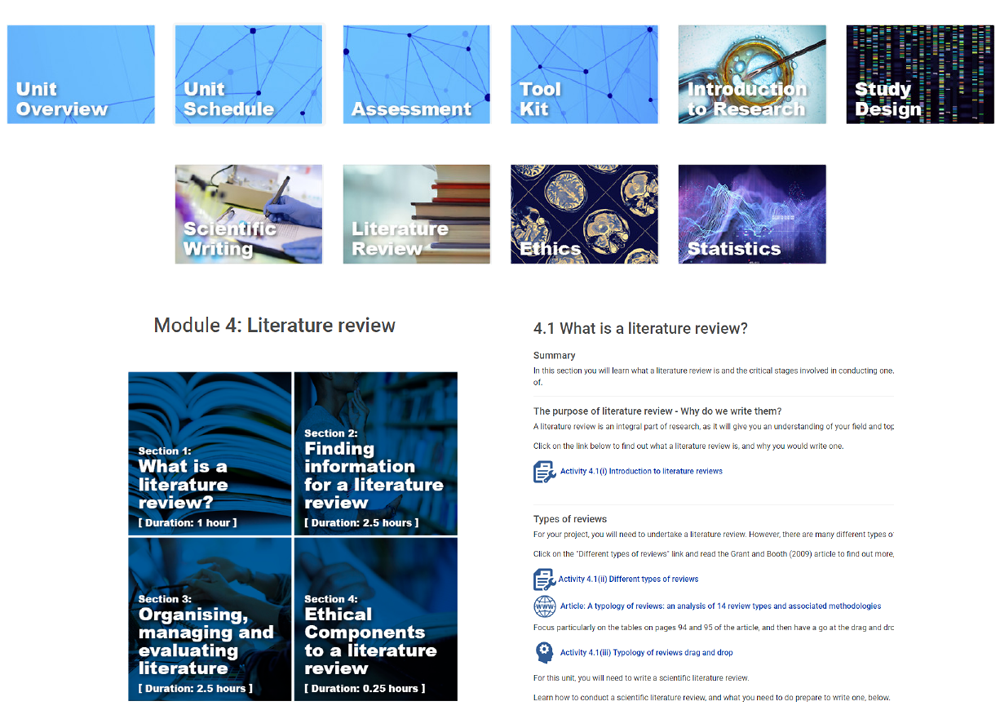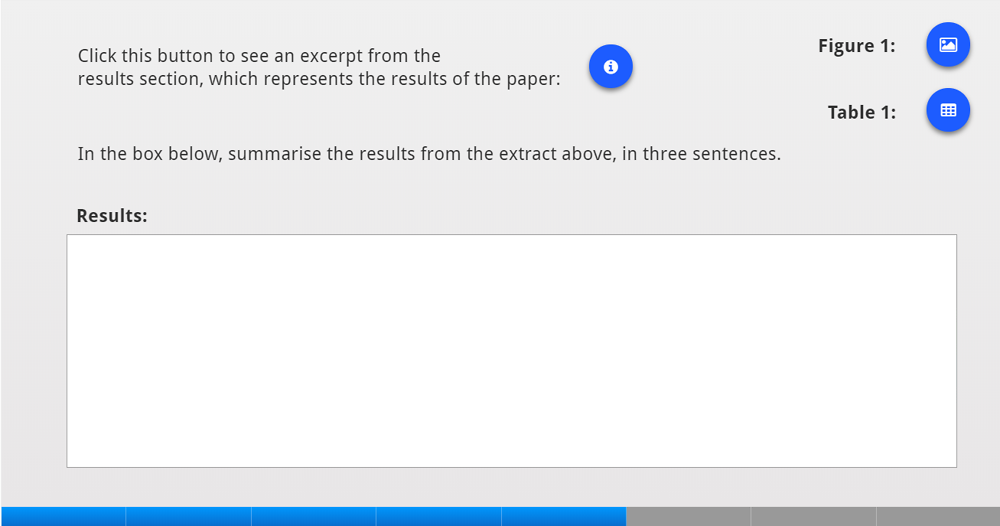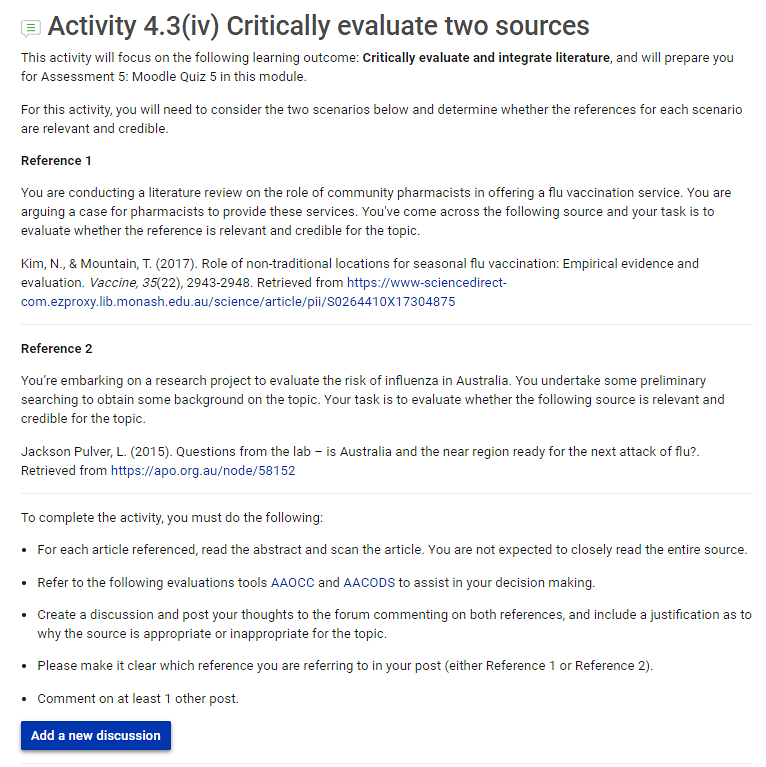PHR5052: Inquiry and Innovation methods |

Working with Learning Transformation, Pharmacy wanted to create a new research unit for third-year students. This project was the first of its kind in the faculty as it was designed to be completely online, and would pave the way for two other online units. As this was a new undertaking, it meant working with well over twenty people, in both Parkville and Malaysia, on the design and delivery.
The unit consisted of six modules, and I took the lead on the planning and development of two of them - module 3, Scientific Writing, and module 4, Literature review. Creating these modules meant working with the lead academic and staff from the libraries in both Parkville and Malaysia on the design and development, providing expertise and guidance around developing online resources throughout the process.
We realised that there was a lot of content that could be covered in both of these areas, which could easily overwhelm students with information that they may not necessarily need. To mitigate the potential for student overwhelm, I emphasised the importance of focusing on what is necessary for students to learn when we designed activities, making sure that everything we developed met the learning objectives and prepared students for their assignments and further research.
One of our main challenges was feedback, as with the number of students enrolled in the unit and the amount of activities we would need to create, the time required to manually give feedback would have made the unit unsustainable. This proved challenging, as each activity needed to be structured in such a way to allow for this. Activities involving the automatic marking of longer pieces of writing, for example, are more complicated.
I made sure to bring this up whenever we planned, designed and developed activities, and offered suggestions as to how we could change the structure of the activities themselves, or use particular tools to automate the feedback process. If we felt that the activity needed to have longer forms of submission, I encouraged having peer feedback through discussion forums or Moodle’s Workshop activity which allows students to grade each others' work. If individual feedback was preferred, we used Moodle Q&A forums, which allow for students to see an expert response after they make a post, and other tools that allow for the formative feedback of longer forms of text. One such tool - a Course Presentation with text entry fields made using the software H5P - allowed students to type longer responses and then export their responses, along with expert or exemplary answers.
I found that the stakeholders I worked with greatly valued my input, both in focusing on what was necessary for students to learn, and in providing feedback and interactivity throughout each module, and were willing to put a great amount of effort in to creating valuable learning experiences for students. In our meetings with the faculty's educational technology team to check over the quality of each module, they were impressed with the depth and breadth of content, and the range and quality of the activities.

A H5P Course Presentation with text entry fields. In this activity, students are asked to create an abstract for an article. On each screen, students need to summarise sections from the article that they can read by clicking on the blue buttons.
Once they reach the end, they can export their responses and see how the abstract was originally written compared with their answers.
